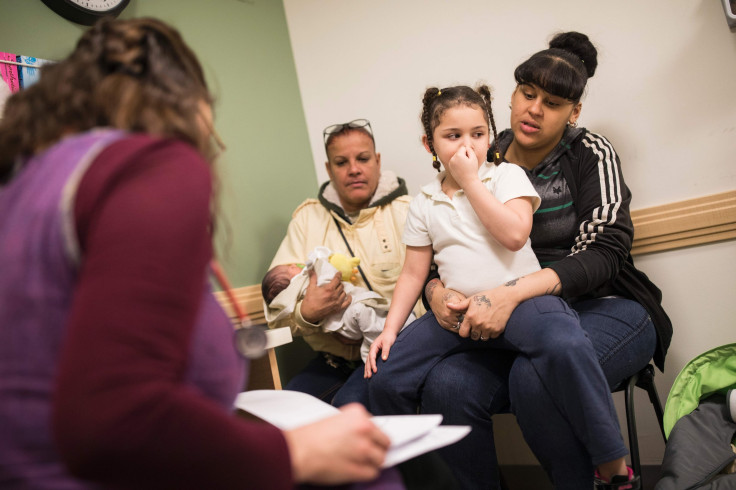Parental Happiness Gap In US: Rising Child Care Costs A Key Concern

Does having kids after marriage make a couple happy? Not in the United States, probably. According to a study published last year, American parents have the largest "parenting happiness gap" when compared to 21 other industrialized nations that are members of the Organization for Economic Co-operation and Development (OECD).
The study titled, "Parenthood and Happiness: Effects of Work-Family Reconciliation Policies in 22 OECD Countries," revealed that parental happiness gap in the U.S. is larger than the United Kingdom and Australia. In some Western countries, however, like Norway, Sweden, Finland, Russia, and Hungary, parents said they were happier than their childless peers.
The researchers, led by Jennifer Glass at the University of Texas, analyzed the factors. They said the factors such as lesser pay, sick and vacation leaves, and high child care costs contributed to their unhappiness.
A poll conducted last year by the National Public Radio (NPR), the Robert Wood Johnson Foundation and the Harvard T.H. Chan School of Public Health, found that child care cost has remained an issue for many parents.
One of the poll participants, Patricia Bauer, who has two boys — Darcy and Merrick — and lives in San Diego with her husband, explained why she and her husband were struggling while raising their kids. Merrick, who was 15 months old at the time, was in a home care setting and Darcy, who was three, was in a more structured preschool. While Bauer worked in educational training, her husband worked as a journalist, NPR reported.
Bauer said her entire take-home pay ($2,400) was spent just on the day care and preschool costs every month. After paying for expenses like groceries, gas, and utilities, she said that calling the family budget stretched was a big understatement. "We feel like we're working so hard, but any minute we could lose everything — you know, if we had some major emergency, we don't have savings," she said.
So how much is the average cost of infant child care in the U.S.? The median income for families is just over $55,000 a year, and the average cost of infant child care is $10,000 a year, according to Rachel Schumacher, who directs the Office of Child Care, a division of the federal Department of Health and Human Services.
She shared these observations with NPR last year and added the high cost of child care was also labor intensive because in most of the states, a certain number of teachers or caregivers were required to ensure the health and safety of children.
While the cost of child care is high, experts feel the cultural differences in the U.S. and other nations also play a key role for contributing to the parental happiness gap. “There’s an incredible anxiety around parenting here that I just don’t feel in other countries,” Christine Gross-Loh, the author of "Parenting Without Borders," was quoted as saying in a New York Times report published in June last year. The book looks at modern parent culture across the developed world.
Gross-Loh said she was raising her children while shuffling between the U.S. and Japan. She also pointed out the American parents were unhappy because they were more anxious about their children's college and future. "In Japan, my 6-year-old and my 9-year-old can go out and take the 4-year-old neighbor, and that’s just normal,” she said adding that in the U.S., that kind of freedom might attract criticism and might also lead to interventions by the Child Protective Services.
According to some observers, the U.S., parents feel worse as they build their lives around their children. “We’re in this very strange cultural moment... Unlike previous generations, we were almost accessories to our parents: We fit ourselves into our parents’ lives, whereas now, our lives are built around our children," Dr. Alicia Walker, assistant professor of sociology at Missouri State University, was quoted as saying in a report published by Today in June.
Some experts have also referred to the societal norms while explaining the happiness gap among the U.S. parents. Many parents try to stick to these societal norms while raising their children that strains their married relationship. "I see a lot of couples who are completely burned out because they are comparing themselves to a fantasy," said David Ezell, clinical director of Darien Wellness, a counseling and mental wellness group in Darien, Connecticut.
© Copyright IBTimes 2024. All rights reserved.






















